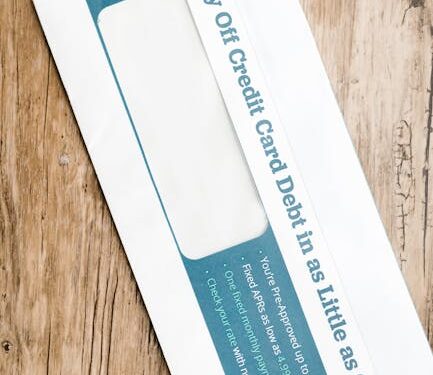Mastering Debt Discussions: Effective Strategies for Negotiating with Creditors
When facing financial difficulties, debts can feel like a looming cloud over your life. Negotiating with creditors might seem daunting, but it’s a crucial step toward regaining financial stability. This comprehensive guide explores effective strategies for negotiating debt, equipping you with the tools needed to confidently approach these conversations and manage your financial obligations more effectively.
Understanding Your Debt Situation
Before initiating any negotiation with creditors, it’s essential to fully understand your financial situation. Start by gathering all relevant financial documents and listing all your debts, including amounts, interest rates, and creditors. This will help you assess your total debt load and prioritize which debts to address first.
Identifying your monthly income and expenses is also crucial as it helps in formulating a realistic payment plan that you can propose to your creditors. This firsthand knowledge of your own finances empowers you during negotiations and helps you make informed decisions.
Researching Your Options
Once you understand your finances, research possible debt relief options. These might include debt consolidation, debt management plans, or even settlement agreements. Each option has its pros and cons, and choosing the right one depends on your specific financial circumstances and the type of debt you have.
For example, debt consolidation can simplify your payments by combining multiple debts into a single loan with a lower interest rate. On the other hand, debt settlement might allow you to pay off a debt for less than what you owe, but it could have a negative impact on your credit score.
The Art of Negotiating with Creditors
Negotiating with creditors requires a strategic approach. Here are several tactics to help ensure a successful negotiation:
- Be Honest and Transparent: Clearly communicate your financial situation and the reasons you’re seeking adjustments to your payment terms. Honest discussions can build trust and foster a more cooperative relationship with your creditors.
- Propose a Specific Plan: Instead of simply stating that you need help, propose a feasible repayment plan based on your financial assessment. This shows that you are proactive and serious about repaying your debt.
- Be Prepared to Compromise: Understand that negotiation is a two-way process. Be ready to compromise to reach a mutually beneficial agreement.
It’s also advisable to request everything in writing. Retaining written records of any agreements made can help eliminate any future misunderstandings between you and the creditor.
Utilizing Professional Help
Consider seeking help from a credit counseling agency if the process seems overwhelming. These organizations can provide guidance and may help you negotiate more effectively with your creditors. They can also help you manage your debt and budget better. Be sure to choose a reputable agency that can truly cater to your needs.
Legal Protections and Regulations
Understanding legal protections involved in debt negotiations is crucial. Familiarize yourself with the Fair Debt Collection Practices Act (FDCPA), which restricts the behavior of collectors; for instance, banning calls at inconvenient times or using deceptive practices. Knowing these laws can protect you from unethical practices.
Preparing for Financial Impact
Negotiating with creditors might affect your credit score. For instance, if you agree on a partial repayment or settlement, your credit report may reflect this, which can potentially lower your score temporarily. It’s important to consider these impacts as part of your overall financial recovery strategy.
Maintaining Communication
After a negotiation, keep up with your new agreement. Maintain consistent communication with your creditors, especially if you foresee problems in meeting the revised terms. Early communication can prevent the situation from worsening.
Conclusion
Negotiating with creditors can be a pivotal step towards resolving your debts and restoring financial stability. By understanding your financial situation, researching your options, and approaching negotiations with a clear and informed strategy, you can effectively manage and overcome your debt challenges. Remember, the goal of any negotiation is not just to ease your current debt burden but to pave the way toward long-term financial health.
With preparation, knowledge, and the right attitude, you can navigate the complexities of debt negotiation and move towards a brighter financial future.
FAQs on Debt Negotiation
- Can negotiating with creditors hurt my credit score?
Yes, some debt negotiation outcomes can impact your credit score temporarily. For example, debt settlement can show up on your credit report and impact your score. However, the long-term benefit of reducing your debt load can outweigh the initial dip in your score. - Should I negotiate with creditors myself or hire a professional?
This depends on your comfort level and financial complexity. If you are dealing with large debts or multiple creditors, consulting a professional might be beneficial. However, many individuals successfully negotiate on their own by being well-prepared and informed. - What should I do if a creditor refuses to negotiate?
If a creditor is unwilling to negotiate, you might consider seeking help from a credit counseling agency. They have experience dealing with various creditors and might offer alternative solutions or interventions.
Debt discussions don’t have to be intimidating. With the right strategies and preparations, you can tackle your debts head-on and chart a course toward financial freedom.

























































